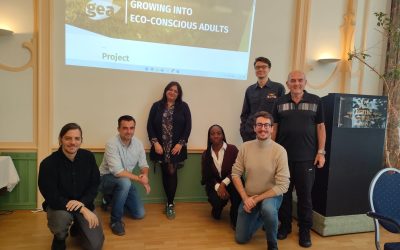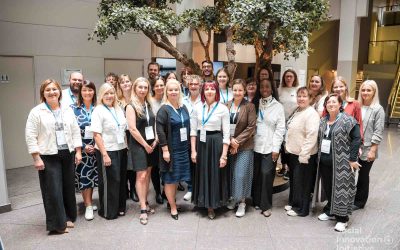Is it possible to increase work opportunities for young people through the application of innovative guidance models and procedures?
What is the impact of applying the Positive Psychology principles in school and career counselling?
The second meeting of the “SUCCESS – Strategies to Utilize and Cultivate Positive Characteristics & Employability Skills in Schools” project took place in Athens (Greece) from 24th to 25th April.
The project aims to educate school counsellors to transfer new knowledge and skills in teaching environments at national and European level, applying positive psychology principles, methods and techniques.
During the meeting in Athens the preliminary results of the research on Positive Psychology principles and career guidance carried out in Italy, Greece, Cyprus, Ireland and Lithuania, partner countries of the project, were presented.
The finalized report will be soon available on eusuccess.eu.
Furthermore, partners selected the materials for the development of the SUCCESS Handbook, which will include theoretical elements and practical activities/methodologies that can be applied concretely in the work of school and career counselling.
After the SUCCESS Handbook, an Online Educational Platform will be created, and it will contain information on the project, the training methodology and the SUCCESS training package (guidance for counselors, training curriculum, supporting educational resources, training materials).
Representatives from all the project partners took part in the meeting in Greece. The next meeting will be held in Cyprus in November 2018, together with the Train the Trainers’ Workshop.
About the project
SUCCESS is cofunded by the Erasmus+ Programme: Key Action 2, Strategic Partnership in the field of School Education.
Partners
Project partnership is made up of 6 organisations:
- VU – Vilnius University(Lithuania, coordiantor);
- GrantXpert Consulting Limited(Cyprus);
- Neophytos Ch. Charalambous – Institute of development (Cyprus);
- Net – ICEP Europe(Ireland);
- HAPPSY – Hellenic Association of Positive Psychology (Greece);
- CESIE (Italy).
For further information
Read more about SUCCESS.
Visit eusuccess.eu.
Contact school@cesie.org.

The European Commission support for the production of this publication does not constitute an endorsement of the contents which reflects the views only of the authors, and the Commission cannot be held responsible for any use which may be made of the information contained therein.









